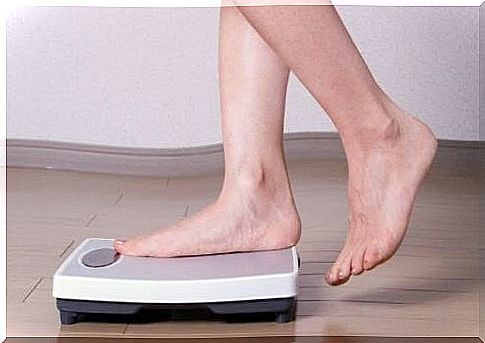Weight Gain During Pregnancy: How Much Should I Eat?

Weight gain during pregnancy is one of the factors that doctors keep a close eye on. Too much or too little weight gain during pregnancy can be an early sign of certain health problems.
But there is no standard figure on how much a woman should put on. Weight gain during pregnancy varies greatly among women, as with so many other things.
Try not to focus too much on weight gain during pregnancy. Instead, pay attention to the food you eat.
Your diet during pregnancy will affect your and your baby’s health.
Weight gain during pregnancy
There are a few common beliefs we should talk about when talking about weight gain during pregnancy. Some of them are more accurate than others. One important thing is the weight of the mother before she became pregnant.
Both obesity and low body weight can be risk factors for pregnancy. Women who are very underweight or overweight should pay extra close attention to their dietary habits to avoid risks associated with fetal health.
Other factors that play a role in weight gain during pregnancy are fluid retention and diet, as well as the following:
- How much the fetus weighs
- The weight of the placenta
- The amniotic fluid
- How much the uterus grows
- Blood flow
- The weight of the breast tissue and fat deposits
How much should I wear during pregnancy?
This is different from woman to woman. All bodies and pregnancies are different.
But the normal weight gain is between 10-15 kg for women with an average weight.
Some women aim for a gradual weight gain according to the following formula:
- In the first three months: 0.5-2 kg
- Before the second trimester: 2.5-4.5 kg
- During the last trimester: 0.5 kg per week
Pregnant women who are underweight in early pregnancy should put on more weight. Preferably up to 18 kg.
But those who are overweight should gain between 7 to 11 kg. Finally, women who are severely overweight may need to gain 5 to 9 kg.
Weight gain during pregnancy should come from a healthy diet that provides all the nutrients that the mother and baby need.

How should a pregnant woman eat?
Once you find out you are pregnant, you need to follow a healthy, balanced diet. Dietitians generally recommend that you increase your calorie intake as follows:
- In the first trimester: eat about the same number of calories as before you became pregnant.
- During the second trimester: eat 300 extra calories a day.
- By the third trimester: your calorie intake should increase by about 500 calories in total.
This diet should be accompanied by mild, daily exercise, depending on the stage of pregnancy.
Instead of eating more than you did before, you should try to eat nutritious foods such as dairy products and foods that are high in protein. These nutrients play an essential role in fetal development.
How to control weight gain during pregnancy
To avoid the anxiety that can accompany weight gain during pregnancy, it is important to stay in control when putting on weight .
Here are some effective tips to keep in mind to make this effective:
Balanced diet
Cut down on saturated fats and increase your intake of Omega 3 – a fatty acid present in fish, nuts and flaxseeds.
This helps your baby grow and promotes the development of the central nervous system.
Medical examinations
A monthly medical examination allows your obstetrician to monitor the growth of the fetus and make sure you are eating a healthy diet.
Your doctor will also measure your blood pressure and determine if your body maintains a lot of water weight.

Eat a little and often
It helps to quench your hunger if you eat a healthy snack in the morning and afternoon. It can reduce obesity if you eat snacks in moderation and it helps with excessive weight gain during pregnancy.
Try to drink two liters of water a day. Avoid juice bars and sodas, which often contain a large amount of sugar.
As long as you have good health, then physical activity is also important during pregnancy. It is ideal to go for walks, do water aerobics or other gentle exercises under the supervision of a specialist.
Knowing how much weight you should gain during pregnancy can help you take control to reduce risks.
Remember, you are eating for your baby as well as for yourself.









